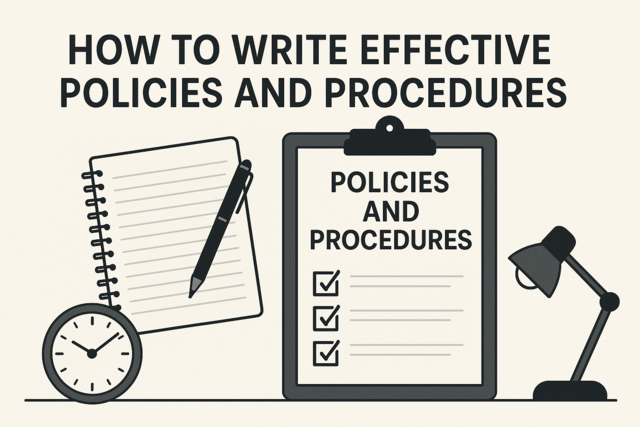Leaders do make mistakes, after all, that is how they learn how to become leaders. Of course, most followers need to see their leaders as flawless, and while this cannot always be done, it is important that leaders know what mistakes to avoid, so that when they do make a big mistake, few people know about it.
When you are a leader, the people under you will be watching to see what you do and what you don't do. As a result, nothing can ruin your integrity and credibility more than when you tell those under you what they should not do, and then you go and do that very same thing.
For those who follow you, it will be a slap in the face and a case of "what is bad for you is good for me because I am in charge." For many, this is one of the quickest ways people lose followers as the power (however little it may be) goes to the leader's head and causes them to go back on their principles.
One of the most important things you can learn as a leader is to lead by example. If you tell your followers not to do something, then don't do it yourself. If you tell them to do something, then be the first to do it and never tell them to do something that you would not do yourself.
Be a Buddy
It can be hard not to be friends with your followers, and while you can be nice to them and hang out with them, you have to be a leader first, and a friend second. You can offer advice and be a mentor, but that is it. You are like their parent, and parents are not friends with their children. They love their children, but they are parents, not friends.
There is too much emotional baggage that comes with being a friend of a follower, and sometimes you have to make decisions that may be affected by having a follower as a friend. This can, then, cause problems. Also, if you favor one over another, it can cause rifts among the people under you or who listen to you. This can then lead to trouble.
Assuming
Leaders should never assume. As the saying goes "when you assume you make an 'ass' out of 'u' and 'me'." This is true and a leader should never assume that everything is taken care of, or that the people following them have the problem under control. Being a leader means you have to be vigilant and on top of things. You have to be ready for anything and you have to know what is going to happen. When you assume, you cannot properly plan ahead, and, in that case, there is no way you can problem solve. If you can't problem solve, then you can't lead. Assumptions are one of the worst things a leader can make. Don't ASSUME everything will work out, KNOW it will because of your planning and problem solving.
The more important a task is, no matter what it is, the fewer assumptions you should make as a leader.
Failure to Prioritize
Leaders need to know what to put first and what to put last. Even supervisors need to know what to teach first and what to teach at the end. As a result, failing to prioritize things is a sure recipe for failure. You also need to have time for everyone who has questions for you. If you don't, and it can be difficult to fit everyone in, then you risk alienating people, which is a way that contempt is created among people. If there is contempt, then there is a lack of respect, and no leader can lead properly if there is no respect for them.
Only Hoping for the Best
We covered this a few lessons ago, but a leader should never hope things turn out for the best, without planning for the worst. If a leader explains that things are only going to be rosy and happy from that day forward, and then tragedy strikes, people are going to turn against the leader.
Politicians are a perfect example of this. Most lack the ability to lead properly and most are elected because of who they know, not what they know. They will promise the moon and say how great things will be in the future, but then when things don't turn out so great, the public loses respect for them, and come next election, the public tosses them out of office.
Leaders need to hope for the best, because hope is very important, but they need to prepare for the worst. If things turn out bad, and you have a plan, that will result in you getting a lot more respect from the people.
Thinking You're the Top
Max De Pree once said in Leadership Is An Art, 'The first responsibility of a leader is to define reality. The last is to say thank you. In between, the leader is a servant.'
The point of this is that too many leaders forget that they are not at the top of the pyramid, they are at the bottom and they are the ones holding it all up. To think you are at the top and to have the attitude of being better than everyone else, breeds contempt. You want your followers and employees to think that you are one of the people, without being their friend. You want them to think that when they complete an important task, it was they who did it, with you leading them. You are not better than your followers. You may be a leader more than a friend, but you need to show them that when it gets right down to it, you will be the first to lead the charge.
Look at Horatio Nelson and Alexander the Great. These men did not stand back and watch their troops die. They did not put themselves ahead of others because they felt they were too valuable. Instead, they were the first ones into the breech, and both died as a result of it. They may not have lived long lives, but they are two of the most respected leaders in human history.
You, as the leader, are not at the top, so don't pretend you're better than others.
Flip-Flopping
We covered this in an earlier lesson as well. When you flip-flop, you lack the conviction to make a decision. This denial of affirmation means that your followers and employees never know when you are going to stick to your guns and when you are not. That means that they will never know when to follow you and when to wait for you to make a flip-flop decision.
This will only generate a lack of respect among employees and followers, and that will have a leader removed faster than you can say, "Horatio Nelson."
Leaders listen to what their followers tell them, consider it, and then make a decision. Once that decision is made, there is no going back.
Resisting New Ideas
As a leader, there is a possibility of having other leaders following you. If one of those leaders decides to be a maverick and think outside the box, don't resist it, embrace it.
You need to be able to go with change and show those under you that when new ideas come up, you are open to them. Getting stuck in conservatism and complacency is one of the worst things you can do.
Tips for Supervising People
When you are a leader, you are going to interact with people, it is how your charisma and abilities to inspire them, give you some room to stretch. That means, that you will have to know how to interact with them properly, and that comes down to being able to supervise. It can be said that supervising people is not a big part of being a leader, but leadership is a big part of supervision.
If someone has a deep love for the success of the company, then you motivate them by telling them how their work helps the company. If you supervise an employee who wants to build their wealth, then you motivate them by offering stock options and profit sharing plans.
What motivates one person does not motivate another. One person may want to help the company and that is motivation enough, while another will want to only further their own career.
Authority can be either made or given. When it is given to someone, that person can often misuse it because they don't know how they are supposed to act with it. These are people who get promotions because they 'talk the talk' and 'kiss up', but lack the ability to get others to follow them, despite the authority.
The reason that authority is so important for someone who is in a supervising position, is that they have to teach people and guide people on how to do things. They have to show them that what they are teaching is the right way to do things and that when they say jump, the person under them says 'how high?'
That is true authority, when no one questions your decision, not because you are in charge, but because they know it is the right decision.
Not very many supervisors have this kind of authority, but those who do have it use it not to their advantage, but to the advantage of those around them. A good leader always remembers their followers, without them, they have nothing.
While a leader is born with authority in them, how do they get others to respect it? It is actually quite easy. It comes down to being able to sit down with people and not yell at them or berate them until they see things your way. It comes down to talking with them and showing them why your way is the better way. That authority comes from taking into consideration what those they supervise think, and even implementing what the employee thinks if they feel it is the right decision.
Confidence is intertwined with motivation and authority. "How?", you ask. Here is a quick rundown of how it works, and how it doesn't work.
- A supervisor, who was put into the position because they befriended the bosses, tells the workers under him to get a job done quicker than they usually do. He does not tell them why they should want to do this, and he lacks the authority to convince them to do it. As a result, the workers under him have no confidence in the decision and they question, not only the supervisor, but also his authority.
- A supervisor works his way up to a position of power in the company. He has a good deal of authority, but when he gives workers an assignment, he does not explain why they should be motivated by it. That lack of motivation breeds a lack of confidence in the decision. For the workers, they will ask, "He has his reasons, but what is in it for me, and why should I do it?"
- A supervisor works his way up to a position of power in the company, setting an example of excellence as he does so. He has several people under him and he has the authority to get the job done. However, he also shows his workers they are appreciated and why they should be motivated to do good work for him. As a result, his workers have full confidence that what he wants of them is for the good of the company, and for themselves, so the job gets done.
As a result, we can see why confidence is so important, because even if someone has authority, if they lack the motivation, confidence in the supervisor erodes away. To supervise properly, all three of these factors have to work together to make sure workers do the best job possible.
Motivation + Authority + Confidence = Proper Supervision
Productivity is one of the most important things any leader needs to know how to handle. Productivity is what drives everything from business to war. If there is no productivity, there is no ability to get things done. This erodes the chain of command and leads to a complete failure in the ability of leaders to manage and supervise.
In terms of economics, productivity is the measure of output of a production process, per unit of input. In terms of labor productivity, it is measured by the ratio of output per labor-hour per unit of input.
The more efficient a company is, the higher the productivity. This, in turn, makes the leaders look like better leaders. It garners increased respect from the people under them and creates a sense of satisfaction and well-being among everyone.
How do leaders maintain productivity in both business and in war? Is it as easy as just getting people to do their job, or does more come into it? Do leaders have to help create that productivity, or do the followers and employees do that for them?
Where does that motivation come from? It comes from supervisors being able to show employees that they not only matter and that they are a piece of the puzzle, but that there are rewards for their hard work.
So, how do you motivate employees to achieve a high productivity? Here are some quick suggestions that use the concept of the Maslow pyramid, which details the hierarchy of human needs and wants.
- Physiological Needs - These are basic needs ranging from food and shelter to clothing and water. As a result, good pay for your employees will aid in creating more motivation to do well in the job.
- Safety Needs - Employees want job security and the ability to work in a safe environment. If they think they are going to be fired, they will not want to work hard. A safe environment is essential.
- Social Needs - Friendship with co-workers and social activities within the company creates happiness among everyone. This creates a more productive environment that motivates employees to do their best.
- Ego - This is the recognition of a job well done, plus rewards and praise from those above them.
- Self-Actualization - Understand the needs of those under you and what they want to achieve from their lives. Once you know this, you can help motivate them using their own goals as the light at the end of the tunnel.
As you motivate, go through the list and figure out what the employees have, what they do not have, and what they will need. By following that list, you will be able to motivate properly. What comes out of good motivation? Good productivity.
Having something to work for and a reward for doing so, people will work harder and more efficiently. If their job is one where they are treated well, paid well, and have lots of perks, then they are a) not going to want to lose their job, and b) not going to want the company to do poorly. Thus they will take pride in their work and in their productivity.
As the leader, productivity starts with you and how you motivate the people below you.




























